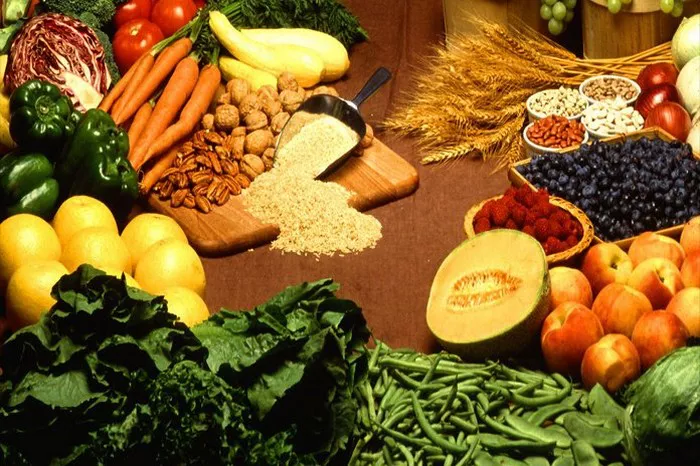Breastfeeding is a critical phase in a mother’s journey, providing essential nutrients and antibodies crucial for the infant’s growth and development. However, some mothers may face challenges with milk production or quality. Fortunately, dietary choices can significantly impact breast milk quality, ensuring optimal nutrition for the baby. In this article, we delve into the science-backed foods that can enhance breast milk quality, empowering mothers to provide the best nourishment for their infants.
Understanding Breast Milk Composition
Before exploring foods to enhance breast milk quality, it’s essential to grasp the composition of breast milk. Breast milk comprises water, carbohydrates, fats, proteins, vitamins, and minerals, tailored to meet the infant’s nutritional needs. The composition of breast milk can vary depending on factors such as maternal diet, hydration, and overall health.
Key Nutrients for Breast Milk Quality
Several nutrients play pivotal roles in enhancing breast milk quality:
1. Omega-3 Fatty Acids: Omega-3 fatty acids, particularly docosahexaenoic acid (DHA) and eicosapentaenoic acid (EPA), are crucial for infant brain and eye development. Incorporating sources of omega-3 fatty acids in the maternal diet can enrich breast milk with these essential nutrients. Fatty fish like salmon, mackerel, and sardines are excellent sources of omega-3 fatty acids.
2. Protein: Protein is essential for infant growth and muscle development. Including lean sources of protein such as poultry, eggs, dairy products, legumes, and nuts in the diet can boost protein content in breast milk.
3. Calcium and Vitamin D: Calcium and vitamin D are vital for bone health, both for the mother and the infant. Dairy products like milk, yogurt, and cheese are rich sources of calcium and vitamin D. Additionally, exposure to sunlight helps the body produce vitamin D naturally.
4. Iron: Iron is crucial for preventing iron deficiency anemia in both the mother and the infant. Iron-rich foods such as lean meats, poultry, fish, legumes, fortified cereals, and leafy green vegetables can enhance iron content in breast milk.
5. Vitamins and Minerals: A varied diet rich in fruits, vegetables, whole grains, and lean proteins ensures adequate intake of vitamins and minerals essential for overall health and breast milk quality. Key vitamins and minerals include vitamin A, vitamin C, vitamin E, zinc, and selenium.
Foods to Increase Breast Milk Quality
Now that we understand the importance of various nutrients, let’s explore specific foods that can enhance breast milk quality:
1. Oats: Oats are a nutritional powerhouse, known for their galactagogue properties, which stimulate milk production. They are rich in iron, fiber, and complex carbohydrates, providing sustained energy for lactating mothers.
2. Fenugreek: Fenugreek is an herb commonly used to boost milk supply. It contains phytoestrogens that mimic the hormone estrogen, thereby enhancing milk production. Fenugreek can be consumed in various forms, including capsules, teas, and cooked dishes.
3. Fennel: Fennel seeds are another galactagogue known for their milk-boosting properties. They can be consumed as a tea or incorporated into recipes to promote lactation.
4. Brewer’s Yeast: Brewer’s yeast is rich in B vitamins, iron, protein, and chromium, making it a popular choice among lactating mothers to increase milk production. It can be added to smoothies, baked goods, or sprinkled over food.
5. Leafy Green Vegetables: Leafy greens such as spinach, kale, and Swiss chard are packed with nutrients like iron, calcium, vitamin A, and vitamin C. Incorporating these vegetables into meals can enrich breast milk with essential vitamins and minerals.
6. Nuts and Seeds: Nuts and seeds are excellent sources of protein, healthy fats, vitamins, and minerals. Almonds, walnuts, flaxseeds, and chia seeds are particularly beneficial for lactating mothers. They can be enjoyed as snacks, added to salads, or blended into smoothies.
7. Garlic: Garlic has been traditionally used to enhance lactation. It is believed to stimulate milk production and improve the taste of breast milk. Including garlic in cooking can impart its benefits to breast milk.
8. Quinoa: Quinoa is a nutritious whole grain rich in protein, fiber, iron, and magnesium. It provides sustained energy and essential nutrients for lactating mothers, thereby enhancing breast milk quality.
9. Salmon: Salmon is a potent source of omega-3 fatty acids, particularly DHA and EPA, which are crucial for infant brain and eye development. Consuming fatty fish like salmon can enrich breast milk with these essential nutrients.
10. Water: Staying hydrated is paramount for adequate milk production. Lactating mothers should drink plenty of water throughout the day to maintain optimal hydration levels and support milk supply.
Incorporating Breast Milk-Boosting Foods into Your Diet
While the aforementioned foods can enhance breast milk quality, it’s essential to incorporate them into a balanced diet. Here are some tips for incorporating breast milk-boosting foods into your meals:
1. Meal Planning: Plan your meals to include a variety of nutrient-rich foods, including those known for their lactogenic properties.
2. Snack Smartly: Opt for nutrient-dense snacks like nuts, seeds, yogurt, and fruit to fuel your body and support lactation.
3. Cooking with Galactagogues: Experiment with recipes that incorporate galactagogue foods like oats, fenugreek, fennel, and brewer’s yeast to boost milk production.
4. Stay Hydrated: Drink water, herbal teas, and other hydrating beverages throughout the day to maintain optimal hydration levels.
Consulting a Healthcare Professional
While incorporating breast milk-boosting foods into your diet can be beneficial, it’s essential to consult a healthcare professional, especially if you have concerns about milk supply or your overall nutritional intake. A lactation consultant or registered dietitian can provide personalized guidance based on your individual needs and circumstances.
Conclusion
Optimizing breast milk quality is crucial for infant health and development. By incorporating nutrient-rich foods known for their lactogenic properties into your diet, you can enhance the nutritional content of breast milk and support your baby’s growth and well-being. Remember to prioritize a balanced diet, stay hydrated, and seek guidance from healthcare professionals as needed to ensure optimal breastfeeding success.


